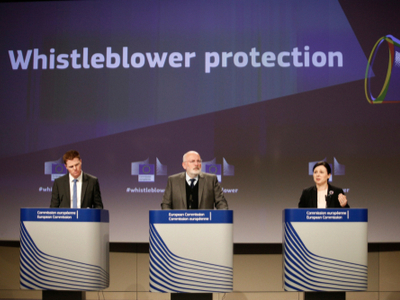On July 16, 2019, three prominent whistleblower law regulators spoke at PLI’s Corporate Whistleblowing in 2019, which was co-chaired by Orrick partners Mike Delikat and Renee Phillips. With the standard disclaimer that their comments and opinions were their own and not the official comments of their respective agencies, each spoke about their agencies’ whistleblower program’s current progress, challenges, and priorities. READ MORE
Regulators Offer Insights Into SEC, CFTC, and OSHA Whistleblower Program’s Trends and Priorities











